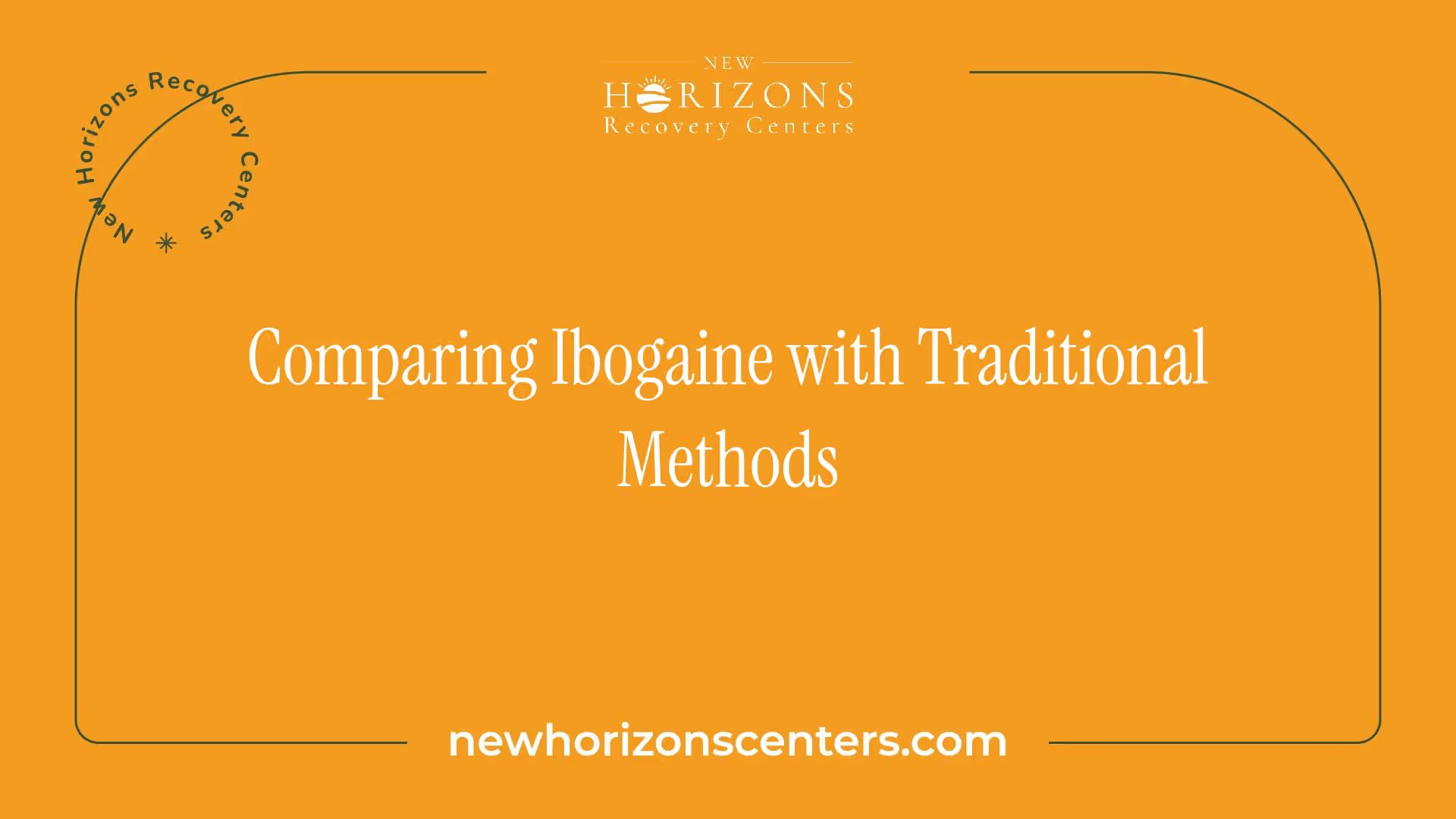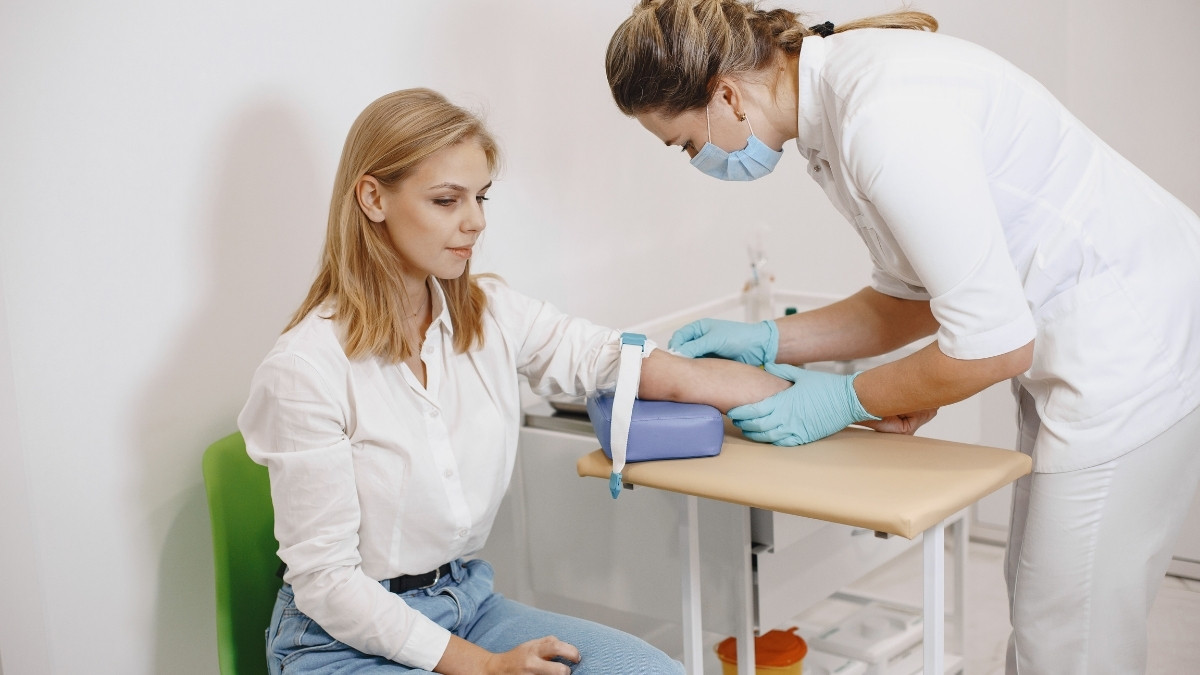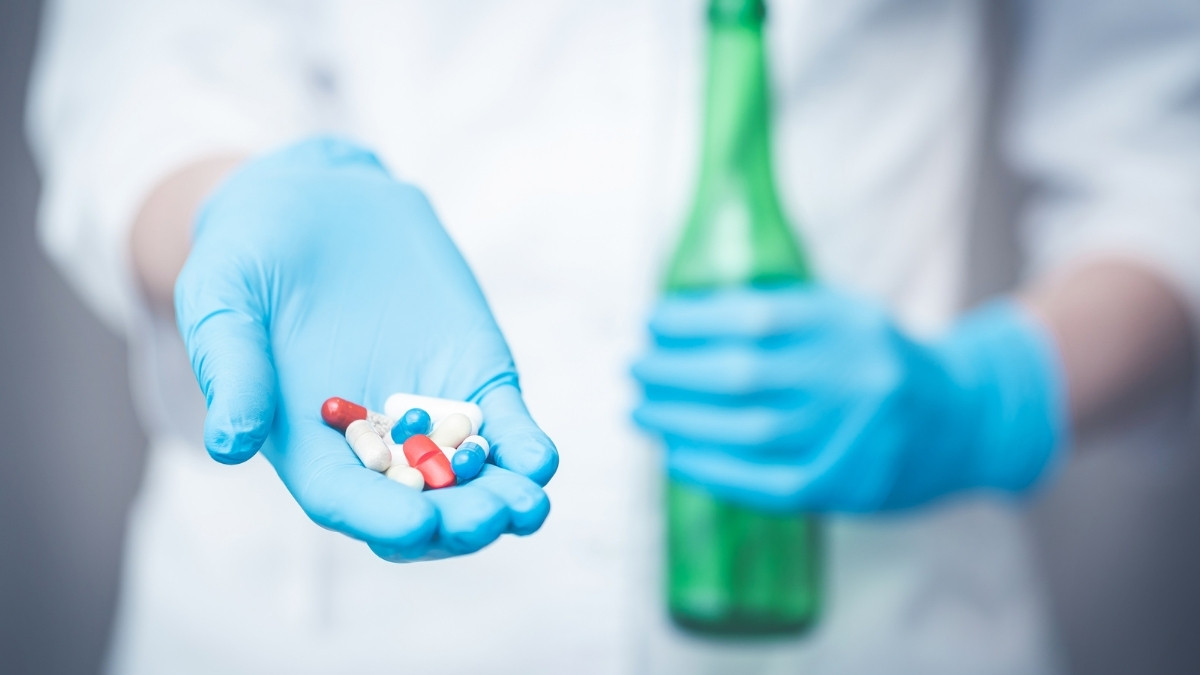Understanding Ibogaine Treatment
Exploring the potential of ibogaine therapy in addiction treatment has garnered significant attention in recent years. Ibogaine, a psychoactive substance derived from the root bark of the iboga tree native to Central Africa, has shown promise in helping individuals overcome addiction through its unique pharmacological effects.

Benefits of Ibogaine for Addiction
Numerous research studies have highlighted the benefits of ibogaine in addiction treatment. A study conducted in New Zealand revealed that a single ibogaine treatment significantly reduced opioid withdrawal symptoms and led to opioid cessation or sustained reduced use over a 12-month period. This demonstrates the potential of ibogaine in addressing opioid dependency and supporting individuals on the path to recovery.
The Multidisciplinary Association for Psychedelic Studies (MAPS) funded observational studies in 2017 that further supported the efficacy of ibogaine in treating addiction. One study, conducted in Mexico, indicated that ibogaine was effective in improving opioid withdrawal symptoms and reducing drug use in individuals who had previously failed to respond to conventional treatment methods. Another study in New Zealand found that participants experienced relief from opioid withdrawal symptoms and either discontinued or reduced their opioid consumption after a single ibogaine treatment.
Ibogaine has been lauded for its effectiveness in targeting various forms of substance abuse, including morphine, cocaine, heroin, and nicotine. Studies have shown that ibogaine can reduce voluntary alcohol intake in animal models and exhibit anti-craving effects by modulating dopaminergic and serotonergic systems. These findings underscore the potential of ibogaine as a multifaceted treatment option for individuals struggling with diverse forms of addiction.
In a Brazilian study from 2014, 75 participants with a history of cannabis, cocaine, crack cocaine, or alcohol use underwent ibogaine treatment. The results revealed that participants who received a single ibogaine treatment reported abstinence from drug use for a median of 5.5 months, while those who underwent multiple treatments maintained abstinence for a median of 8.4 months. These findings suggest the sustained benefits of ibogaine treatment in supporting long-term recovery from addiction.
The compelling evidence from research studies and clinical observations underscores the potential of ibogaine as a valuable addition to the spectrum of addiction treatment modalities. As further clinical trials and advancements in ibogaine research continue to unfold, the role of ibogaine in addiction recovery holds promise for transforming the landscape of addiction treatment and providing individuals with new avenues for healing and recovery.
Efficacy and Safety of Ibogaine
Exploring the potential of ibogaine in addiction treatment involves a detailed understanding of its efficacy and safety profile. Research studies have shed light on both the positive effects and potential risks associated with ibogaine therapy.

Research Studies on Ibogaine
According to a study conducted in New Zealand, a single ibogaine treatment demonstrated promising results in reducing opioid withdrawal symptoms and achieving opioid cessation or sustained reduced use in dependent individuals over a 12-month period. Moreover, a systematic literature review highlighted the effectiveness of ibogaine in treating substance use disorders (SUDs) by reducing withdrawal symptoms, cravings, and potentially offering benefits for depressive and trauma-related psychological symptoms. This review included 24 studies with 705 individuals receiving ibogaine or noribogaine [2].
Research by Dr. Mash also indicates that ibogaine has the potential to significantly reduce drug cravings and symptoms of depression with a single dose of 500 to 800 mg. Patients treated with ibogaine have shown a decreased risk of relapse within two months post-treatment.
Potential Risks of Ibogaine Therapy
While ibogaine has shown efficacy in treating addiction and withdrawal symptoms, it is crucial to consider the potential risks associated with its use. Temporary side effects of ibogaine include the accumulation of the compound in fatty tissues, which can block potassium channels and increase the risk of heart conditions [4]. In cases of high doses, reports have linked ibogaine to fatalities due to toxicity.
Historically, ibogaine has been used by the Fang peoples in Central Africa for centuries as a religious sacrament and holds promise in treating substance use disorders, particularly opioid detoxification. However, concerns regarding its safety remain, with neurotoxic and cardiotoxic effects being major considerations.
Understanding the balance between the efficacy and safety of ibogaine is essential in evaluating its potential as an addiction treatment option. Further research and clinical trials are needed to assess the long-term effects and safety profile of ibogaine in addiction therapy. It is important for individuals considering ibogaine treatment to be well-informed about both its benefits and associated risks before proceeding with therapy.
Legal Landscape of Ibogaine
The legal status of ibogaine, a psychoactive substance used in addiction treatment, varies significantly across the globe. While some countries have legalized its use for therapeutic purposes, others maintain strict regulations around its administration.

Ibogaine Legal Status Globally
According to Transcend Ibogaine, ibogaine therapy remains illegal in the United States. The FDA has not approved ibogaine for any medical use due to safety concerns, with documented fatalities associated with its uncontrolled use [2]. However, some countries have embraced ibogaine as a tool for addiction treatment, recognizing its potential benefits in addressing substance use disorders.
The legality of ibogaine in various countries is influenced by a multitude of factors, including scientific research, cultural considerations, and global trends. While some nations have acknowledged the therapeutic potential of ibogaine and have established regulatory frameworks for its use, others remain cautious about its widespread availability and continue to regulate its usage.
For an overview of the legal status of ibogaine in different countries, refer to the updated rankings provided by World Population Review. This information offers insight into the diverse approaches taken by governments worldwide regarding the legality of ibogaine for addiction treatment.
Challenges in Legalizing Ibogaine
The process of legalizing ibogaine for therapeutic purposes is not without its challenges. Despite the positive impact it can have on individuals struggling with addiction, concerns persist regarding its safety and potential for misuse.
In the United States, the journey toward regulatory approval for ibogaine therapy has been met with obstacles, partly due to the lack of comprehensive scientific data supporting its efficacy and safety [5]. The need for rigorous clinical trials and evidence-based research continues to be a priority in establishing ibogaine as a legitimate treatment option within the healthcare system.
Furthermore, the stigma surrounding psychoactive substances and the historical context of drug regulation pose additional hurdles to the widespread acceptance and legalization of ibogaine. Cultural perceptions, differing medical philosophies, and divergent policies on drug enforcement contribute to the complexity of navigating the legal landscape of ibogaine for addiction treatment.
By addressing the challenges in legalizing ibogaine and advocating for evidence-based research, policymakers can make informed decisions that prioritize patient safety while exploring the full potential of ibogaine as a valuable tool in addiction recovery strategies.
Practical Considerations for Ibogaine Treatment

When contemplating ibogaine treatment as an option for addiction recovery, there are practical considerations that individuals need to take into account. Accessing ibogaine treatment and understanding its cost and affordability are key factors for those considering this form of therapy.
Accessing Ibogaine Treatment
Accessing ibogaine treatment is not as straightforward as conventional addiction treatment methods due to various legal restrictions and the limited availability of licensed facilities. Individuals seeking ibogaine therapy often have to travel to countries where it is legal and regulated for specific uses. This can present challenges in terms of logistics, travel arrangements, and potential language barriers.
Moreover, not all addiction treatment centers offer ibogaine therapy, making it essential for those interested to research and identify reputable facilities with experienced medical professionals to ensure safe administration and monitoring during the treatment process.
Cost and Affordability
The cost of ibogaine treatment can vary significantly based on several factors, including the location of the treatment facility, the duration of the therapy, the intensity of the treatment program, and the level of medical supervision required. In some cases, insurance providers may not cover ibogaine therapy, leaving individuals responsible for covering the full cost out of pocket.
Considering the expense involved in ibogaine treatment, individuals need to weigh the financial implications against the potential benefits of this alternative approach to addiction recovery. It is crucial to conduct thorough research, seek advice from healthcare professionals, and explore available financing options or assistance programs that may help offset the cost of treatment.
Understanding the logistics of accessing ibogaine treatment and evaluating the financial implications are integral parts of the decision-making process for individuals considering this unique and potentially beneficial therapy in their journey towards recovery. For more information on alternative treatment methods, explore our article on the use of transcranial magnetic stimulation in addiction treatment.
Comparing Ibogaine with Traditional Methods

When exploring the potential of Ibogaine in addiction treatment, it's essential to consider how this innovative approach stacks up against traditional methods like Methadone. Let's delve into the comparison between Ibogaine and Methadone, as well as their respective treatment success rates.
Ibogaine vs. Methadone
Treatment Success Rates
Studies and reports suggest varying success rates for both Ibogaine and Methadone treatments. Here's a comparative insight into their efficacy:
Treatment MethodSuccess RateAdditional InformationIbogaine50-80%Anecdotal evidence and some studies suggest a success rate between 50-80% with lasting results due to its holistic approach.Methadone60-90%Methadone has a success rate ranging from 60-90%, but it often requires long-term maintenance to manage addiction effectively.
When considering the treatment success rates of Ibogaine and Methadone, it becomes clear that both approaches have shown positive outcomes. However, the holistic nature of Ibogaine, encompassing spiritual, psychological, and physical aspects, sets it apart from the traditional, medically focused approach of Methadone. Individuals seeking addiction treatment may benefit from exploring the unique advantages and considerations of each method to find the most suitable path to recovery.
Future of Ibogaine Research
As the exploration of Ibogaine for addiction treatment continues to garner interest, the future of research in this field is crucial. Two significant aspects mark the path forward: the need for further clinical trials and the promising developments in Ibogaine research.
Need for Further Clinical Trials
Despite the potential benefits of Ibogaine in treating various forms of substance abuse, including morphine, cocaine, heroin, and nicotine, scientists have yet to conduct placebo-controlled, double-blind clinical trials on Ibogaine. Current research has primarily relied on open-label studies, where all participants were aware of the treatment they were receiving.
To establish Ibogaine as a legitimate treatment option and pave the way for decriminalization or legalization for medical purposes, conducting rigorous clinical trials is imperative. Placebo-controlled studies would provide more concrete evidence of Ibogaine's efficacy, safety, and potential role in addiction recovery.
Promising Developments in Ibogaine Research
Recent advancements in Ibogaine research have shown promising results. An Ibogaine analog, 18-Methoxycoronaridine (18-MC), has demonstrated effectiveness in reducing the self-administration of various substances, including morphine, cocaine, methamphetamine, and nicotine. It has also shown promise in attenuating signs of opioid withdrawal with reduced toxicity compared to Ibogaine [5].
While traditional clinical trials are still lacking, anecdotal reports and historical evidence suggest that Ibogaine may hold potential in the treatment of addiction. However, it is essential to validate these claims through robust scientific research and trials. By further exploring the mechanisms of action and potential applications of Ibogaine, researchers can unlock a deeper understanding of its role in addiction recovery.
The future of Ibogaine research hinges on the commitment to conducting comprehensive clinical trials to establish its safety and efficacy. Through continued exploration and validation of its therapeutic properties, Ibogaine has the potential to revolutionize addiction treatment and offer new hope to individuals struggling with substance use disorders.
References
[2]:
[3]:
[4]:
[5]:
[6]:







